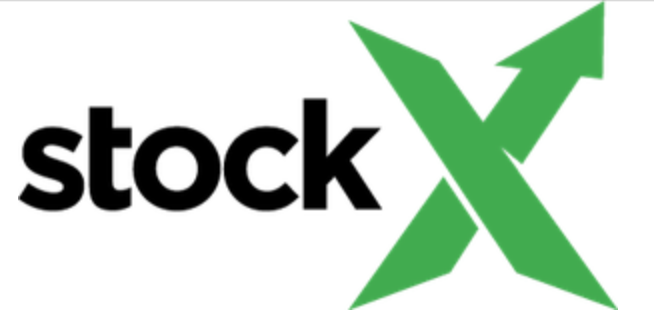This new stage of licensing in sports can finally provide opportunities for women unlike any other time in sports history.
This has been a milestone year for collegiate sports, as legislators and governing organizations’ rules and guidelines regarding name, image and likeness (NIL) have finally been enacted in favor of the athletes. As of December 2021, more than half of all U.S. states have issued executive orders or enacted legislation that allows compensation for NIL for our college athletes.
Initially there was some skepticism that women’s sports would be an afterthought to traditional male dominated marquee sports, like football and basketball. However, data and recent actions are projecting and proving otherwise. For example, a study conducted in 2020 by AthleticDirectorU.com and the marketing firm Navigate Research found that 13 of the 25 college athletes with the greatest endorsement potential were women. Further, female college athletes stand to earn annual endorsements as high as $466,000.
In 2021, America saw how the updated NIL guidelines helped actualize this data. Some high-profile deals included:
- UConn women’s basketball star Azzi Fudd signed a prestigious NIL deal with Steph Curry and his brand, SC30 Inc.
- Nike signed its first NIL deal with UCLA sophomore soccer player, Reilyn Turner.
- Chloe Mitchell, a volleyball player for Aquinas College, has endorsement deals with two miniature golf brands.
The terms of these deals and others are not always fully disclosed, but the message is clear that liberalized NIL laws are truly leveling the playing field among men and women.
Social Media as an Off-Field Marker
While sports themselves may not have changed much over the years, the marketing game has been entirely overhauled. We are living in a digital age and traditional sports media coverage is no longer enough, on its own, to boost the awareness and the prestige of players or to position them for professional sports careers.
Most athletes are developing their own brand on social media, a tool they can leverage when not in season or competing. Teenage athletes and those in their 20s are incredibly tech-savvy, which has translated into big numbers off the field, with hundreds and thousands of followers to attract an audience who may otherwise have never heard of them or seen them play. The new NIL laws finally allow a chance to truly monetize the engagement of their social media followers.
For example, Fresno State University basketball players and twin sisters Hanna and Haley Cavinder have 2.7 million followers on TikTok. According to the online athlete marketing platform Opendorse, the pair could earn more than $167,000 annually from just social media posts. Studies have found that though men’s college athletes dominate mainstream media coverage, social media influencing offers an open court. Opendorse CEO Blake Lawrence, who was a linebacker for the University of Nebraska Cornhuskers, referred to influence marketing as “the ultimate equalizer” when it comes to licensing and compensation.
The Cavinder Twins may be setting a high bar for influence marketing, but they also illustrate the enormous potential. The onus is on our college players – particularly women – to continue their digital engagement to expand their leveraging and monetizing their social media presence.
NIL Rules In Practice
There is a tremendous amount of attention on NIL laws, and not just because of the potential earnings at stake. The National Collegiate Athletic Association (NCAA) has adopted interim NIL rules and writers, business owners and legal professionals are eager to see how they will protect players’ interests in the event of an injury.
NIL was put to the test in December 2021 when Azzi Fudd and her UConn Huskies teammate, Paige Bueckers, were put on the disabled list for injuries. Fudd’s injury was minor and only expected to last for a short period. Bueckers’ knee fracture put her on the disabled list for up to eight weeks. Front Office Sports analyzed whether the injury would jeopardize her potential WNBA salary (and career) and NIL agreements with Gatorade and StockX, an online marketplace for clothing, collectibles, and other accessories.

It determined that NCAA rules on NIL would prevent any company from putting “a stipulation in an athlete’s contract that would lower or dissolve the deal if a collegiate player gets hurt.”
While the sports site interprets this rule to inherently favor Bueckers, no claim has been filed so there is not yet a legal precedent. Furthermore, it is doubtful that a claim would be filed, since Bueckers has been supported via the public statements made by Gatorade and StockX.
StockX told Front Office Sports: “Our commitment to Paige extends well beyond the court. Our partnerships are based on the alignment of our values and visions, not on an athlete’s ability to play.”
Fortunately, this company is willing to uphold its commitment to its athlete because of what they represent and not solely on their client’s performance. This is an about face from the conduct of several companies and organizations who have been involved with sports. A public statement like this creates a win-win situation, since it enhances a company’s own reputation as one that sees their clients as individuals and not just audience magnets and cash registers. Whether others will follow StockX’ lead remains to be seen.
For nearly a century, NCAA amateurism rules have prevented athletes and recruits from earning compensation connected to playing sports, including profiting from the use of their NIL. This new stage of licensing in sports can finally provide opportunities for women unlike any other time in sports history.

Join the conversation!